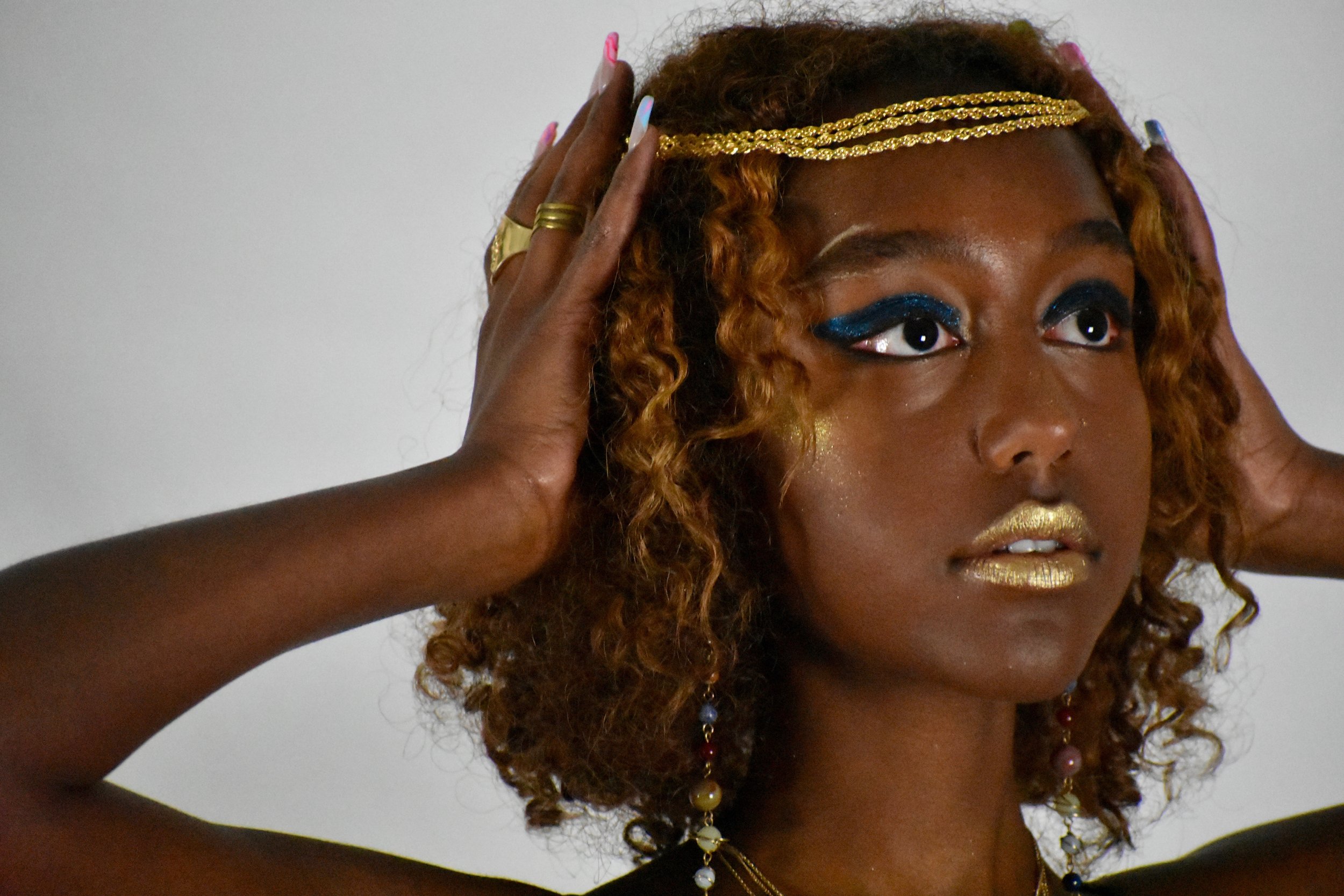WTF is Afrofuturism?
Photoshoot Director: Yola Mzizi
Photographer: Hannah Carroll
Photo Assistant: Wyatt Morris
Styled By: Nia Robles and Grace Shin
Model: Haben Fessehazion
Black Formal is quickly approaching; here’s all you need to know about this year’s theme of “Afrofuturism”.
Northwestern’s Black Formal is back. For the first time in three years, Black Formal will be in person on May 9 with an “Afrofuturism” theme. But what even is Afrofuturism? I sat down with the Black Formal executive board to discuss what Afrofuturism means to us, and what NU’s Black Formal attendees should know about the theme.
Afrofuturism may seem like a concept only relevant in academia — but it’s applicable to many aspects of Black life today. Black Formal co-chairs Selena Ruffin and Sierra Turner find the term to be all-encompassing.
“Thinking about our existence as Black people… it really collaborates with the idea of technology, futuristic values and futuristic settings,” Turner says. “Oftentimes, when people discuss Black people, it’s not normally in a sense that involves any technology or future. So it’s breaking away from that and showing how we do exist in that context and how we are making a way for ourselves.”
In many ways, the tenets of Afrofuturism and Black Formal are incredibly similar, as Turner relates the two to be “creating a space that wasn’t normally for us, and filling that space and disrupting it at the same time.”
As a past affiliate of Greek Life on campus — a white-dominated institution on campus — Turner found it disheartening that there weren’t spaces for Black people to simply be Black in a formal setting to the likes of Greek life formals. The aim of Black Formal was to create that space in an intentional way.
“Black Formal is about a familial, comfortable space where we are centering Blackness on purpose,” Ruffin says.“Everything is very purposeful… everything is Black unapologetically.”
Blackness is the driving force for global culture today. According to Ruffin, the Black diaspora lies at “the intersection of futurity and culture.” Blackness constantly pushes the meter in imagining and creating authentic narratives — a narrative which Afrofuturism seeks to further. Afrofuturism is an important, and some may argue imperative, lens to analyze Black past, present and future. Black individuals globally have faced systemic and historical oppression for centuries. Yet, this constant marginalization of Black individuals has brought about resilience and creativity spanning the diaspora.
To put it simply, Afrofuturism can be a way of reframing Black futures through centering Black advancements and successes. It is an optimistic way of looking at Blackness and celebrating the cultures and histories of Black pasts. It dares to center the possibilities of what lies ahead that does not include the racial confines and oppression of the present.
You may have encountered aspects of Afrofuturism in the media without realizing. Films like “Black Panther” utilize sci-fi and fantasy in order to imagine alternative Black futures. Yet this concept spans beyond the popular Marvel blockbuster: it is a social, political and artful field of thought.
When Black formal co-chair of venue and decorations Sloane Harris, Turner and Ruffin think of Afrofuturism, they think of a broad spectrum of artists throughout histories and genres, citing their collective love for Janelle Monet, “Black Panther” and Solange as examples of prominent Black inspirations that emulate ideals of Afrofuturism.
“Afrofuturism is an interesting way that we have brought to and pulled from Black formal these past years,” Harris says.
But when it comes to the Black Formal, Ruffin says “we want people to come and be Black however that looks… don’t be too stressed about the theme. Just wear what you want. Come as you are – be Black and embrace it.”






















